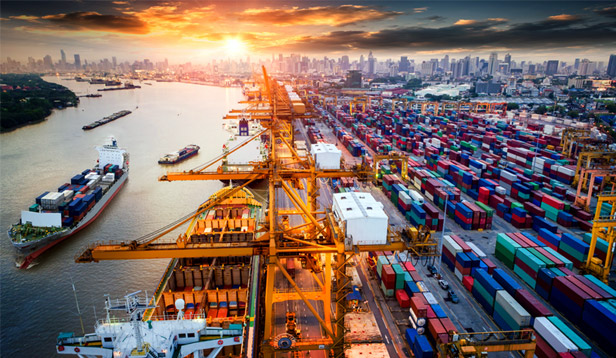News March 22, 2022
China’s Spreading COVID Shutdowns Complicate Promo’s Supply Chain
Delays in production and shipping of products are being reported, but it remains to be seen if they’ll be protracted enough to fuel further inventory shortages in the promo industry.
As COVID-related societal restrictions ease in one area of China, they remain or intensify in others, causing complications and concern for supply chains in the North American promotional products industry.
The majority of promo products sold domestically are produced overseas, particularly in China. So when Chinese authorities implemented a lockdown last week in Shenzhen, an important manufacturing hub home to large essential ports, worry flared among sourcing pros in promo that there’d be intensified delays with production and stateside delivery of products.

While many restrictions in Shenzhen have reportedly lifted, allowing factories to resume operations provided there aren’t virus outbreaks in their facilities, the reality is that the shutdown in the city of about 13 million is still having effects on productivity, some promo sourcing executives say. It’s a problem exacerbated by societal lockdowns spreading to other areas in China.
“At least five major cities – Shenzhen, Shanghai, Dongguan, Jilin and Langfang – are now under varying levels of lockdown,” says Jing Rong, vice president of supply chain and compliance at Braintree, MA-headquartered Top 40 supplier HPG (asi/61966). “At this time, most of our Shenzhen and Dongguan supplier factories are still closed. From what we hear, the outbreak is spreading and additional cities could be put under semi or unofficial stay-at-home orders. For instance, we just got notification that Quanzhou is on semi-lockdown.”
From a purely business standpoint for promo, the tangled web of societal restrictions matters because it can shut down or curtail factories that manufacture products sold here, or cause delays in getting produced goods to market in North America. Even if factories and ports remain open in China, for example, “the truckers are having a hard time delivering goods to ocean terminals due to area or road restrictions” related to COVID, notes Rong.
Jeffrey Nanus, CEO of Norwood, NJ-based hard goods supplier AAA Innovations (asi/30023), says his contacts on the ground in China relate that the COVID situation and restrictions are worsening.
“Our China office has told us to brace for significant production and shipping delays throughout China,” Nanus says. “We’re expecting both production delays and further ocean cargo delays. Currently, vessels are tracking an average delay of three weeks.”
As this Promo Insiders Fast Take video details, promo’s supply line issues are expected to persist in 2022.
Alphabroder (asi/34063), the second-largest supplier by revenue in promo, notes certain factories it works with have been temporarily sidelined. “Some factory partners are shut down for one week, some two weeks,” says Teresa Fang, alphabroder’s vice president of supply chain. “Shut down times will differ based on region and on the circumstances at the factory, such as if there were any COVID-positive cases or not.”
If production and shipping holdups become especially protracted and domestic demand remains high, there could be additional inventory shortages in the promo products arena, something that’s already been a problem in the industry for more than a year due to supply line challenges.
Nonetheless, proactive suppliers like alphabroder, HPG and AAA Innovations say they’ve built delay expectations into their importing models and have brought larger quantities of inventory to North America farther in advance than what would’ve been the practice prior to the pandemic. As such, they feel their inventory levels are significantly bulwarked against depletion.
“As long as the shutdown isn’t more than two weeks, I don’t expect major disruption to our supply chain,” Rong shares. “We brought in significant inventory in preparation for Chinese New Year (which occurred in February) and weren’t expecting factories to return to full capacity until early April anyway.”
Says Fang: “The general feeling is that this should not affect overall production schedules but the resulting impact rippling down the supply chain might cause some disruption.”
Executives note it remains to be seen just how things will play out, as authorities in China continue to take a “zero-tolerance” policy toward COVID, instituting widespread shutdowns and restrictions when even a relatively small number of cases are detected in an area. The COVID rise in China, the worst since the early days of the pandemic, is being driven by the highly transmissible omicron variant.
“Personally, I think the worst is yet to come,” says Eli Schneider, director of operations at Los Angeles-headquartered Top 40 distributor BAMKO (asi/131431), which does considerable direct importing through its global supply network. “Of course, nobody knows for sure. The events of the last several years have made everyone look foolish.”
